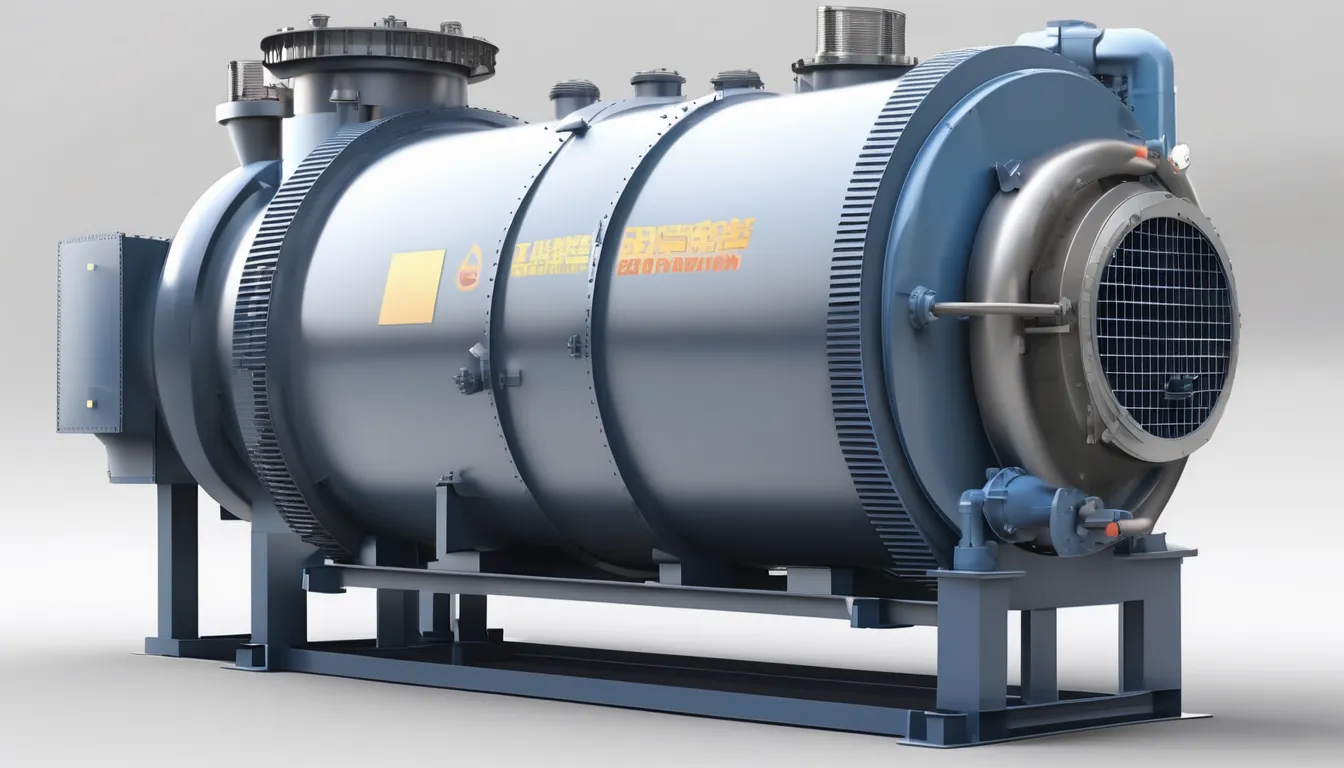
When you consider the complexities of chemical processing, turbo expanders stand out as a key technology that can significantly enhance your operations. These devices not only convert high-pressure gas energy into mechanical work but also optimize energy recovery, which could lead to substantial cost savings. As you explore their applications in areas like natural gas liquefaction and petrochemical production, you might find yourself wondering how they can be integrated into your systems for maximum efficiency. The implications for sustainability and operational excellence are worth examining further.
Overview of Turbo Expanders
Turbo expanders play a crucial role in various chemical processing applications, efficiently converting high-pressure gas energy into mechanical work. These devices operate on the principle of adiabatic expansion, allowing gas to expand rapidly while doing work on a turbine. As the gas expands, its pressure and temperature decrease, and this energy is harnessed to drive equipment like compressors or generators.
In your facility, you might use turbo expanders to recover energy from gas streams in processes such as natural gas processing, air separation, or refrigeration. By integrating these devices, you can improve overall system efficiency and reduce energy costs.
Turbo expanders come in multiple designs, including radial and axial configurations, allowing you to select the most suitable option for your specific application. Additionally, they’re designed to handle various gases, including natural gas, nitrogen, and helium.
Their reliability and efficiency make them essential components in modern chemical processing plants. Understanding the mechanics and applications of turbo expanders can help you optimize your operations, leading to better energy management and sustainability.
You’ll find that investing in these technologies pays off in the long run, contributing significantly to your facility’s performance.
Key Benefits in Chemical Processing
Integrating turbo expanders into your chemical processing operations brings numerous advantages that can significantly enhance efficiency and reduce costs. One of the key benefits is energy recovery. By utilizing the high-pressure gas expansion process, you can capture and convert energy that would otherwise be wasted. This not only optimizes your energy usage but also lowers your operational expenses.
Another benefit is improved process efficiency. Turbo expanders can help maintain optimal temperatures and pressures, enabling your processes to run smoothly and effectively. This stability can lead to higher product yields and better quality, which are crucial in competitive markets.
Additionally, turbo expanders reduce the need for external power sources. By generating power from the expansion process, you can decrease reliance on grid electricity, further cutting costs and enhancing sustainability.
Lastly, these devices require minimal maintenance compared to other mechanical systems. Their robust design and fewer moving parts lead to increased reliability and reduced downtime, allowing you to focus on production rather than repairs.
Applications in Natural Gas
In natural gas processing, turbo expanders play a crucial role in enhancing efficiency and energy recovery.
These devices help you extract energy from high-pressure gas streams, enabling you to optimize your processes and reduce costs. By expanding the gas, turbo expanders convert pressure energy into mechanical energy, which can then be used to drive compressors or generators.
Here are some key applications in natural gas:
- Natural Gas Liquefaction: Turbo Expander s are essential in cooling natural gas to its liquefaction point, allowing for easier transportation and storage.
- Gas Processing Plants: They help recover energy from the pressure drop during the separation of hydrocarbons, boosting overall plant efficiency.
- Pipeline Operations: Turbo expanders assist in regulating pressure and recovering energy during gas transmission, enhancing the reliability of the pipeline system.
Role in Petrochemical Production
Within the realm of petrochemical production, turbo expanders significantly enhance energy efficiency and process optimization. By utilizing the high-pressure gas streams generated in various processes, these devices convert thermal energy into mechanical energy, which can then be harnessed for power generation.
When you integrate turbo expanders into your operations, you not only reduce operational costs but also improve overall system performance.
In processes like ethylene cracking and ammonia production, turbo expanders play a crucial role by recovering energy from high-pressure gas streams. This energy recovery reduces the need for additional fuel, allowing your facility to operate more sustainably.
You’ll find that the enhanced efficiency can lead to reduced greenhouse gas emissions, aligning with industry trends and regulatory requirements.
Moreover, the use of turbo expanders helps maintain optimal temperature and pressure conditions, which can lead to improved product yields and quality. By managing these variables effectively, you can enhance the reliability of your production processes.
Investing in turbo expander technology enables you to stay competitive in the petrochemical market while driving innovation and sustainability in your operations.
Future Trends and Innovations
As the chemical processing industry evolves, many companies are exploring groundbreaking innovations in turbo expander technology. You’ll find that advancements are focusing on enhancing efficiency, sustainability, and integration with renewable energy sources. These trends are reshaping how turbo expanders are designed and utilized.
- Advanced Materials: Companies are experimenting with lightweight, high-strength materials that can withstand extreme temperatures and pressures, improving performance and durability.
- Digital Integration: The rise of smart technology is leading to the development of turbo expanders with integrated sensors and real-time monitoring capabilities. This allows for predictive maintenance and optimized performance.
- Hybrid Systems: The shift toward renewable energy is inspiring the creation of hybrid systems that combine turbo expanders with other technologies, such as heat exchangers and storage solutions, to maximize energy recovery.
These innovations aren’t just about improving current systems; they’re paving the way for a more sustainable and efficient future in chemical processing.
Conclusion
In summary, turbo expanders are essential for enhancing efficiency in chemical processing. By converting high-pressure gas energy into mechanical work, they help you save costs and reduce downtime. Their applications in natural gas and petrochemical production highlight their versatility and importance. As innovations continue to emerge, you can expect even greater benefits from turbo expanders, making them a key component in promoting sustainability and optimizing processes in the industry.
